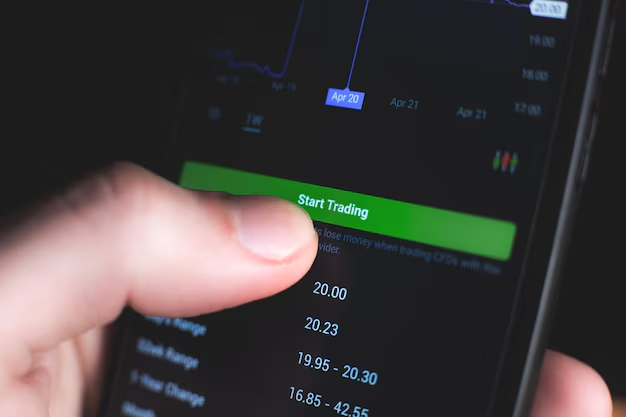Forex Trading Hours: When Is the Forex Market Open?
Forex trading offers an exciting opportunity for investors around the globe to engage in dynamic financial markets. Understanding when the forex market is open is crucial for traders looking to maximize their participation and make informed trading decisions. In this comprehensive guide, we'll explore the different trading sessions, the advantages of trading during specific times, and practical tips for navigating the forex market hours.
🌎 Understanding Forex Market Hours
The forex market, unlike traditional financial markets, operates 24 hours a day from Monday to Friday. This continuous operation is made possible by the global distribution of forex trading centers across different time zones. Let's delve deeper into how these trading hours are structured.
The Core Trading Sessions
Sydney Session: The first session to open every week, the Sydney session, kicks off at 10 PM GMT on Sunday. It generally features moderate trading activity as traders in Australia and parts of Asia take the forex stage.
Tokyo Session: The Tokyo session opens at 11 PM GMT, overlapping with the Sydney session. Known for substantial market movements, especially in yen pairs, this session offers traders numerous opportunities.
London Session: At 7 AM GMT, the London session opens, marking the busiest time of the forex trading day. This session sees significant volatility and high liquidity, as it overlaps with both the Tokyo and New York sessions at various times.
New York Session: The New York session starts at 12 PM GMT, providing robust activity, especially when overlapping with the London session. As one of the world's largest financial centers, this session contributes to dominant trading volume across major currency pairs.
Overlaps and Their Implications
Session Overlaps offer increased liquidity and volatility, presenting key opportunities for traders:
Tokyo-London Overlap: This overlap occurs from 7 AM to 8 AM GMT. While brief, it shows increased market activity.
London-New York Overlap: The most significant overlap, from 12 PM to 4 PM GMT, accommodates a high volume of trades and significant price movements. Traders can capitalize on this activity to exploit short-term volatility.
🕒 Practical Tips for Navigating Forex Trading Hours
Key Considerations for Traders
Stay Informed About Daylight Saving Time (DST): DST can shift trading session times in some regions. Keeping track of these changes is essential to ensure you don't miss crucial trading periods.
Plan Your Trading Strategy Based on Sessions: Aligning your trading strategies with specific sessions can enhance your effectiveness. For example, trading yen pairs during the Tokyo session or pound pairs during the London session can leverage session strengths.
Watch for Economic News Releases: Major economic announcements can significantly impact currency prices. Be aware of scheduled releases and adjust your trading positions accordingly.
Utilize Economic Calendars: Economic calendars can provide advance notice of upcoming events and data releases, allowing traders to prepare strategically.
📈 Overlapping Session Strategies
Take Advantage of High Liquidity: Trading during the London-New York overlap can allow traders to find tighter spreads and execute large trades efficiently due to significant liquidity.
Scalping and Short-Term Strategies: The high volatility during overlapping sessions can be ideal for scalping and short-term trades, allowing traders to capture quick profits.
Trend Following During Low Volatility: During off-peak times, look for trend-following opportunities, as markets may establish consistent patterns.
🧠 Managing Risks
Forex trading carries inherent risks, which are often amplified during certain trading hours. Here are some tips to manage these risks effectively:
Set Stop-Losses: Protect your capital by setting stop-loss limits to minimize potential losses during unpredictable market movements.
Avoid Overtrading: The allure of the 24-hour forex market can lead to overtrading. Stick to a disciplined trading plan tailored to your goals and risk tolerance.
Practice Sound Money Management: Allocate only a portion of your capital to each trade, ensuring you have enough buffer to withstand market fluctuations.
🎯 The Best Times to Trade Forex
The ideal times to trade forex depend on various factors, including currency pairs of interest, personal trading style, and market conditions. Here's a summary to guide you:
| Session | Best For | Key Characteristics |
|---|---|---|
| Sydney | Beginners, Low Volatility | Soft opening, calm market, low liquidity |
| Tokyo | Asian Pairs (JPY) | Yen-driven movements, Asian market influence |
| London | All Traders | Most active session, high volatility, news releases |
| New York | USD Pairs | US economic data impacts, afternoon fade in volatility |
| Overlaps (Tokyo-London/New York-London) | Experienced Traders | High liquidity, increased volatility, strategic opportunities |
🔑 Key Takeaways for Aspiring Forex Traders
🌐 Global Accessibility: Forex's round-the-clock operation enables traders worldwide to participate based on their schedules.
📊 Liquidity and Volatility: Different sessions offer unique levels of activity. Understanding these can better position traders to capitalize on market movements.
🎯 Strategy Alignment: Tailoring your trading strategy around specific sessions is crucial. Consider the currency pair and economic news pertinent to the session.
🚨 Risk Management: Practicing disciplined forex trading with an emphasis on managing risk is vital to long-term success. Tools like stop-loss orders and proper money management can protect against unforeseen market swings.
In an ever-evolving financial landscape, knowing when the forex market is open and understanding the nuances of each session is crucial. Traders who effectively leverage market hours can unlock opportunities to achieve their trading objectives. As you embark on your forex trading journey, keep these insights and strategies in mind to enhance your trading experience and potential outcomes.

